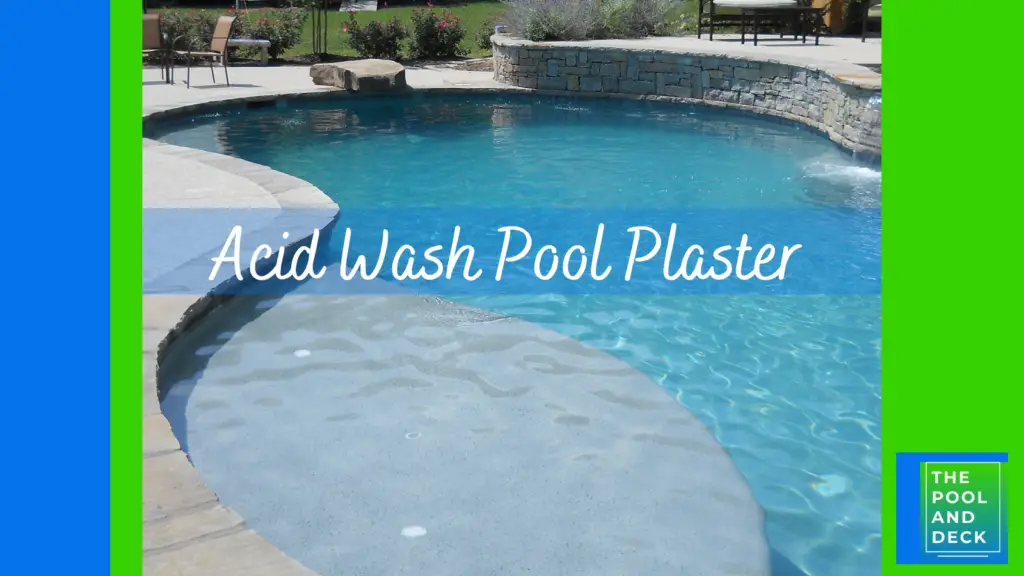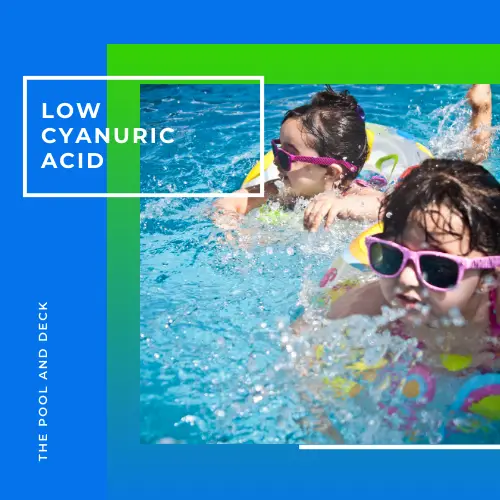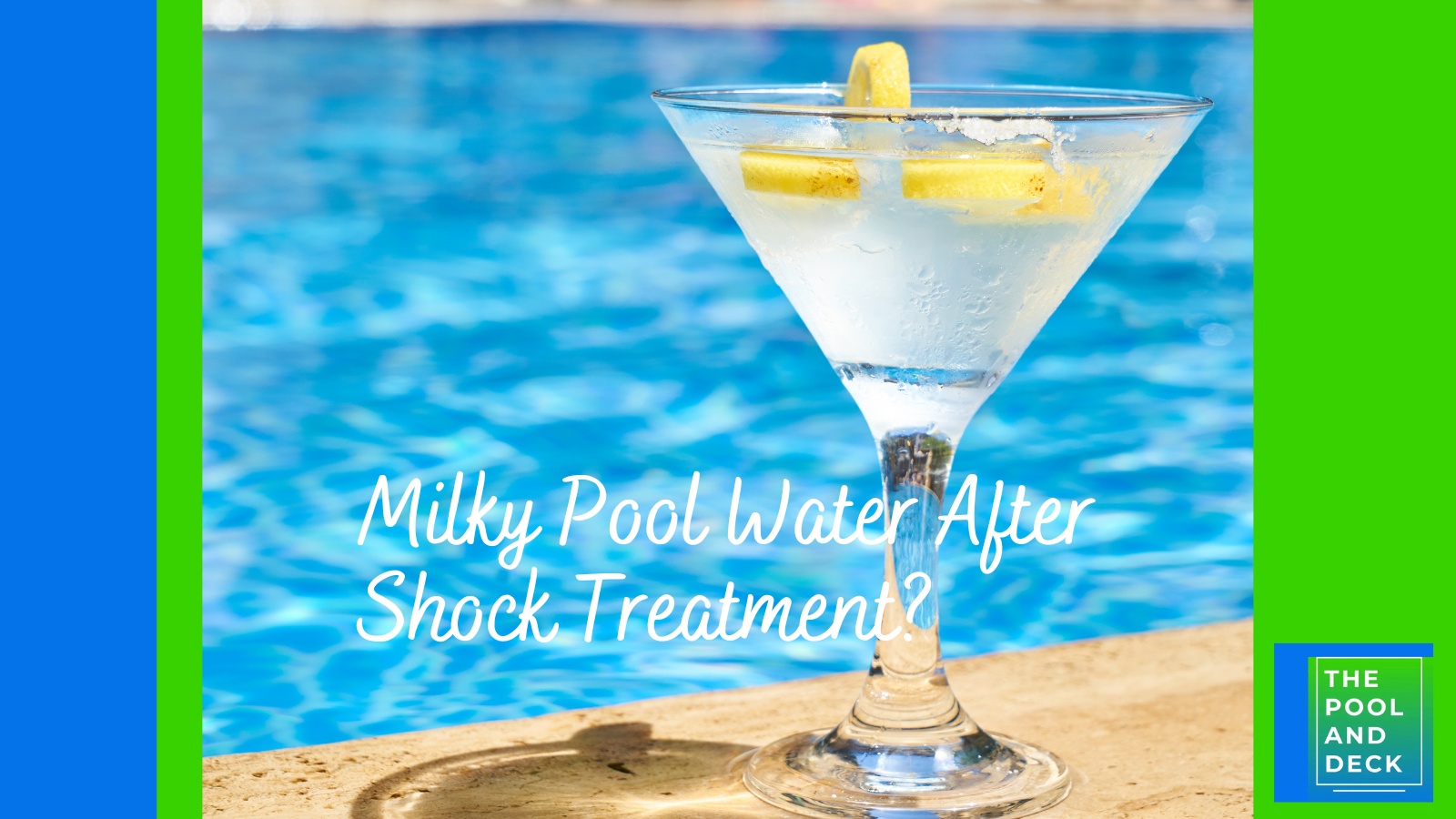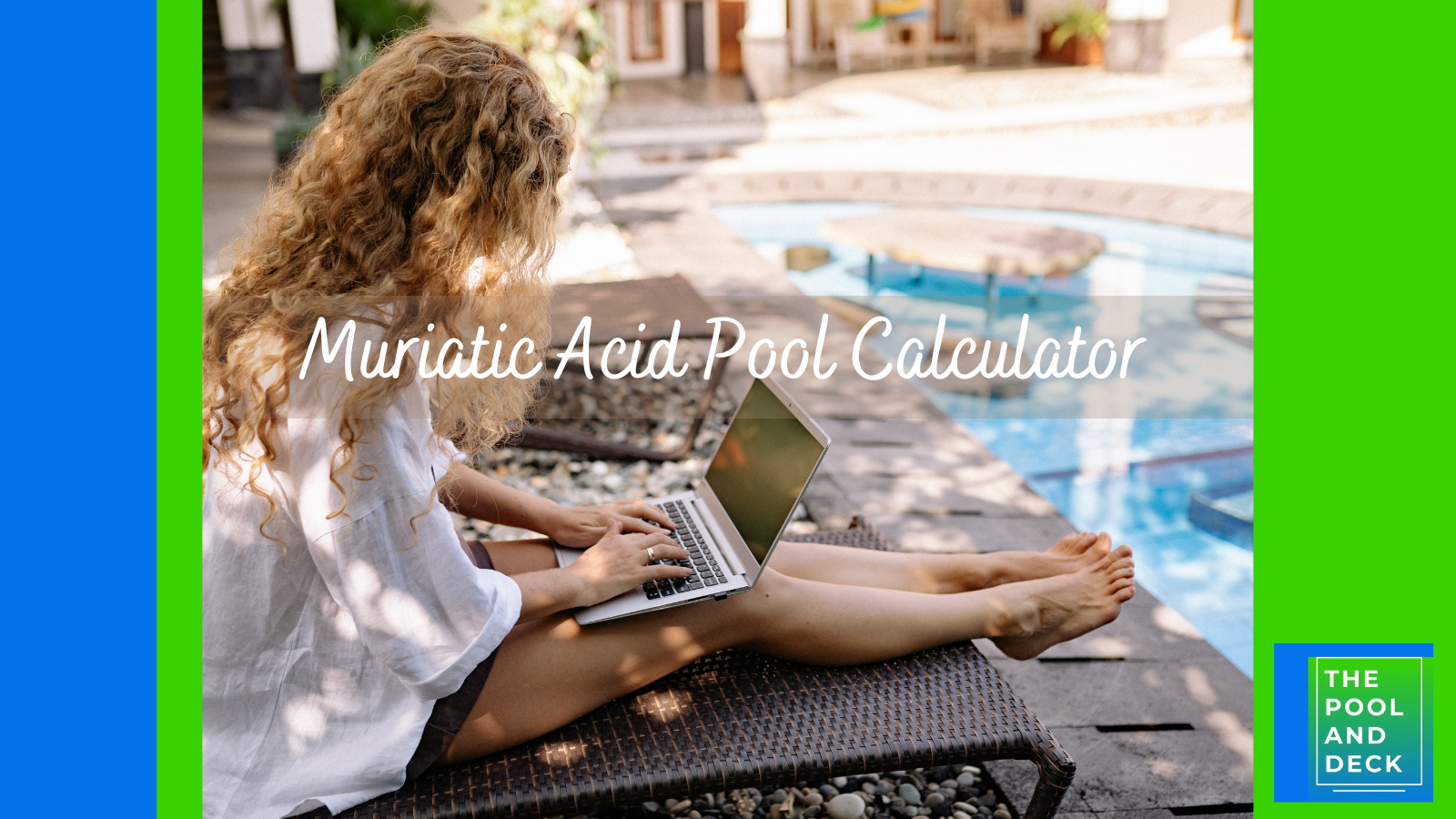When & How to Acid Wash Pool Plaster for a Great New Look!
As an Amazon Associate, I earn from qualifying purchases.
Table of Contents
When to Acid Wash Pool Plaster?

You may need to acid wash pool plaster when you start getting an yes as an answer to one or more of the following questions regarding the pool plaster.
- Are brushing and vacuuming no longer effective in removing stains?
- Does the plaster appear faded and discolored?
- Does the plaster feel rough or textured?
- Are you experiencing repeated algae blooms despite regular pool maintenance?
- Did an algae bloom leave extensive staining on your pool surfaces?
- Has your pool been unattended and stagnant for an extended period?
- Are you planning on performing pool plaster repairs, such as, applying new plaster?
Another indicator that it’s time for an acid wash is if your pool water chemistry is consistently out of balance despite regular maintenance. Mineral deposits and other contaminants can accumulate on the plaster over time, to the detriment of aesthetics and water quality.
How Often To Acid Wash Pool Plaster Walls?
The answer to this question is, acid wash only when you have exhausted other cleaning options. Acid washing pool plaster is quite a job requiring pool downtime, effort and money. Do not take this job lightly as you can expect to spend in 4 figures.
As a rule of thumb, consider acid wash of pool plaster once in 5 years. In general, most pools require acid washing every 3 to 7 years to refresh the plaster surface and remove stubborn stains.
Of course, the time between acid washing is a function of contamination load and pool maintenance discipline. Pools that experience heavy usage or are exposed to yard debris may require more frequent acid washing. Conversely, pools with lighter usage and diligent maintenance routines may be able to extend the time between acid washes.
What is Acid Washing?
You can refresh the looks of your pool by acid washing it periodically. So, what is acid washing pool plaster?
Acid wash is a process that involves the controlled application of a diluted acid solution, typically muriatic acid, to the walls and surfaces of the pool with the intention of removing the dirt, grime, algae buildup and stains that may have accumulated over a period of time.
Acid washing pool walls and bottom becomes necessary when other cleaning methods may have failed to get effective results.
Acid wash strips away a thin layer of plaster, along with the dirt and grime adhering to it and results in a refreshed, new look plaster surface, that has a cleaner and brighter appearance.
Apart from improving the aesthetics, an acid wash pool plaster will also enhance water quality by eliminating algae and bacteria stuck to the plaster surface.
Does Acid Wash Damage Pool Plaster?
Let’s face the truth. Acid washing removes a microscopic layer of the pool plaster and as such damages the plaster to a degree. But this, in principle, is no different than pressure washing a driveway or a garage floor.
However, there is always the risk of causing some serious damage to the plaster and even the pool if the application is not done correctly. After all, we are dealing with a highly corrosive chemical here!
Acid washing, when done improperly, can indeed pose risks to pool plaster. The process involves the use of acidic solutions, typically muriatic acid, which dissolves a thin layer of plaster to remove stains and buildup.
However, excessive or incorrect application of acid can lead to damage, including etching or pitting of the plaster surface.
The main risks emerge from insufficient dilution of the muriatic acid, prolonged or uneven application and failure to neutralize the acid properly after washing.
Another risk is dealing with an empty inground pool as the walls and the floor are subjected to hydrostatic pressure from the ground and may pop!
In my opinion, the execution of acid washing the pool plaster is best left to professionals with sufficient experience.
Can You Use Muriatic Acid in a Plaster Pool?
Muriatic acid is commonly used in plaster pools for acid washing, but caution is paramount.
The Safest Muriatic Acid for Acid Washing
Acid Blue Muriatic Acid by CPDI is the most effective and the safest Muriatic Acid for use as acid wash for pool plaster. You can order it from Amazon.
Acid Blue Muriatic Acid by CPDI
Vapor Reduction Technology reduces up to 90% of harmful vapors compared to standard muriatic acid.
Recommended Safety Guidelines
Muriatic Acid can effectively remove stains and buildup, but it must be handled with care. Here are some tips & guidelines:
Personal Protective Equipment
You must wear the appropriate personal protective equipment during acid washing.
Always wear a mask that is designed to block acid fumes and protect your respiratory system. Make sure to wear chemical-resistant gloves throughout the process to prevent any acid from reaching your skin.
Protect your eyes by wearing safety goggles to prevent serious injury from acid splashes, and rinse your eyes promptly if contact happens. Cover your skin by wearing long pants, a long-sleeved shirt, and closed-toe shoes to minimize any exposure to the acid.
Precautions During Application
Total care is required when handling muriatic acid. Always pour it slowly and store containers securely to prevent splashing and spills. Always dilute the acid in the correct order by adding it to water, never the other way around, to avoid dangerous reactions.
Keep children and pets indoors and away from the pool area during the acid washing process to ensure their safety. In any case, clear the pool deck of any trip hazards to prevent accidents while working.
Ensure that you have a plan for proper disposal of wastewater and acid mixtures in accordance with local regulations to prevent environmental damage.
Expert Tips
- Do not plan the acid wash on windy days as calm weather prevents acid fumes from spreading and causing harm.
- Take your time with the job and follow instructions meticulously to prevent accidents and mistakes.
- Adhere to all safety precautions provided by the acid manufacturer.
- It’s best to engage experienced professionals for the job.
How to Acid Wash Pool Plaster Walls
Here is a step-by-step guide on how to acid wash pool plaster walls:
- Drain and Clean the Pool: Use an algae brush to scrub all surfaces as the pool drains to remove debris and algae. Wet down the surfaces with a hose to prevent plaster damage.
- Replace the Hydrostatic Pressure Relief Valve: Prevent acid mixtures from seeping into groundwater by replacing removed valves.
- Dilute the Acid: Mix the muriatic acid with water in a 1:1 ratio or adjust based on the condition of the plaster.
- Prepare the Garden Hoses: Connect two hoses—one for continuous flow and another with a spray nozzle for rinsing.
- Acid Wash the Pool: Pour diluted acid mixture onto surfaces, scrub, and rinse in sections, starting from the deep end and moving to the walls.
- Neutralize the Acid as You Go: Add soda ash continuously to neutralize the wastewater and prevent accidents.
- Test the Acid/Water Mixture Before Disposing: Use a water test kit to ensure pH levels are neutral before disposal.
- Pump Out the Wastewater: Use a submersible pump to drain wastewater and follow proper disposal guidelines.
- Rinse the Deep End Again: Rinse the deep end floor once more to remove any remaining residue. Vacuum if required.
- Refill the Pool: After ensuring cleanliness, refill the pool with fresh water.
- Add the Pool Chemicals: Add all the pool chemicals in the correct order and dosage to get the recommended pool water chemistry.
Chlorine Wash vs Acid Wash: Pros & Cons
Chlorine wash is an alternative to acid wash. Chlorine is milder than muriatic acid and at times a chlorine wash of your pool my serve the requirement. Here are the pros and cons of both:
| Acid Wash | Chlorine Wash |
|---|---|
| Pros: | Pros: |
| Effective for removing mineral deposits and algae stains. | Can effectively remove organic stains and sanitize the pool. |
| Refreshes plaster surface, restoring appearance. | Helps maintain chlorine levels and prevent algae growth. |
| Can be used to address stubborn stains and discoloration. | Relatively easy and quick process compared to acid washing. |
| Cons: | Cons: |
| Requires careful handling and safety precautions. | Not as effective for removing mineral deposits or hard stains. |
| Can damage plaster if not done correctly. | May not address all types of stains, particularly mineral deposits. |
| Requires draining the pool and thorough rinsing afterward. | Can increase chlorine levels in the pool, requiring adjustment. |
Ultimately, the choice between acid washing and chlorine washing depends on the specific needs and conditions of the pool. Acid washing is more suitable for addressing mineral deposits and stubborn stains on plaster surfaces, while chlorine washing is better for removing organic stains and sanitizing the pool water.
Thank you very much for reading the post. I do hope you found it informative and helpful.







